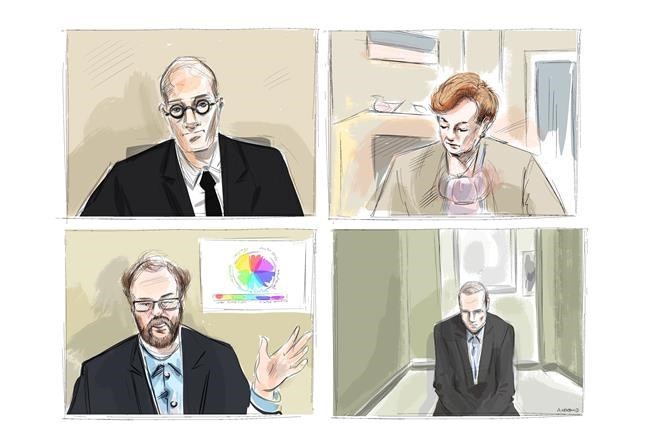TORONTO — Alek Minassian was "saturated in horrific material" online where he conceived the idea to use a van as a weapon to get a high "kill count" score, his murder trial heard Tuesday.
Dr. Alexander Westphal, a psychiatrist who is testifying for the defence, said Minassian was obsessed with various abhorrent online sites, including one that glorified mass murderers listed in order by how many people they killed.
"I don't doubt that in the absence of this sort of thing that this would not have happened," Westphal said.
Westphal is expected to say Minassian is not criminally responsible for his actions on April 23, 2018, due to autism spectrum disorder.
"Autism alters perception and understanding of the world enough to be something that is really, really important when you’re discussing culpability," Westphal said.
Minassian has pleaded not guilty to 10 counts of first-degree murder and 16 of attempted murder. He has admitted to planning and carrying out the attack, leaving his state of mind at the time the sole issue at the judge-alone trial.
Westphal, who specializes in autism, met with the 28-year-old from Richmond Hill, Ont., on several occasions for a total of 15 hours.
The psychiatrist said Minassian feels no emotion over what he did.
"It's as abstract as killing people in a video game, which is such a horrific concept, but that really is how I feel he was thinking about this," Westphal said.
"He still doesn't have any emotional connection with what he did."
Westphal said Minassian told him multiple reasons why he committed the attack, but nothing really explains the motivation.
Minassian has said he was motivated by his hatred towards women for years of rejection as part of the convoluted world of so-called "incels", or involuntary celibates, of like-minded men who believe they are on the bottom rung of society.
"I don't really see incels as an explanation," Westphal said.
Westphal said Minassian's social isolation was a factor, as was his anxiety toward starting a new job.
But Minassian was drawn to the notoriety of mass murderers and their "kill counts," Westphal said.
The concept of death is abstract to Minassian, Westphal said, and he talked about the lives lost as "converting life status to death status."
When the psychiatrist asked what Minassian knew about death, the 28-year-old said "death is irreversible."
"The only explanation that makes any sense to me is that he didn't understand or didn’t have the slightest insight into the horror or devastation that he was inflicting," Westphal said.
He said Minassian has a complete lack of empathy and cannot understand how other people feel.
Minassian told Westphal, and several other assessors, he was bullied in school.
At one point, Westphal asked Minassian if he understood that others would think of him as a bully because of the attack.
"He appeared both shocked and dismayed by the statement and in a way almost like it was an outrageous suggestion," Westphal said.
"I'm not a bully," Minassian responded, according to Westphal. "I hate bullies, how could anyone think that?"
Westphal has said Minassian lacks empathy due to his autism spectrum disorder. He said Minasisan does not feel remorse or regret, but is also not experiencing sadism or taking any joy from retelling the attack.
"When he describes this stuff, he's describing it completely flat in the same way you or I would describe going shopping and the order of things we purchased when we went shopping," he said.
"It's completely devoid of any emotional context whatsoever and any sense of the impact this had on other lives."
Court has heard that more than 90 per cent of people found not criminally responsible in Canada experienced psychosis.
"Overall, it was our impression that despite the fact he was not psychotic, his autistic way of thinking was severely distorted in a way similar to psychosis," Westphal said.
"There is support in the literature that autistic ways of thinking may distort reality as substantially as psychotic ways of thinking."
This report by The Canadian Press was first published Dec. 1, 2020.
Liam Casey, The Canadian Press



